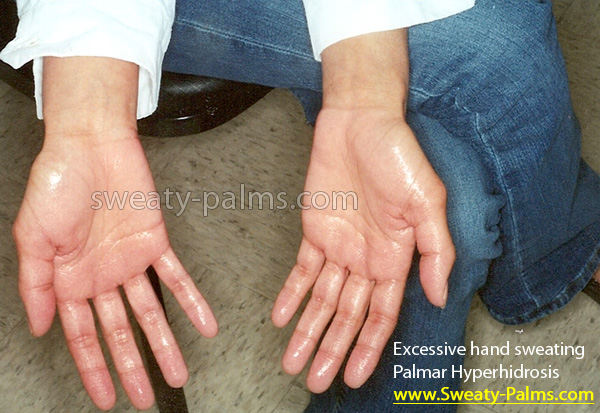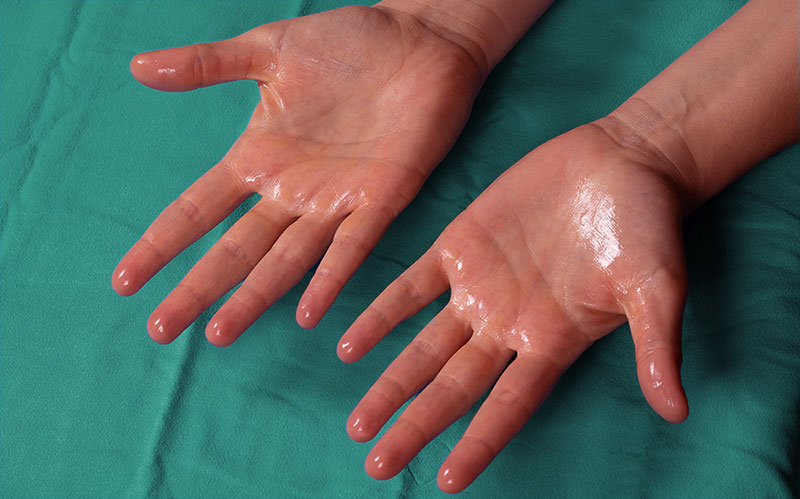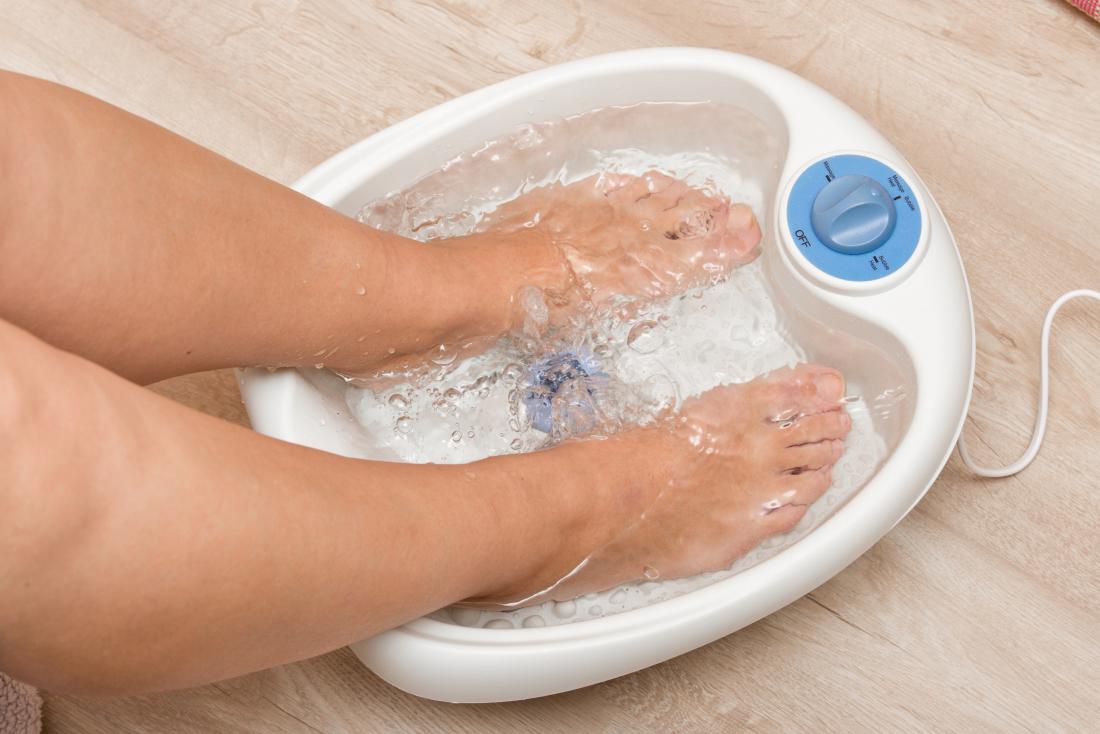How to Stop Sweaty Hands and Feet: Top Dermatology Treatments for Excessive Sweating
How to Stop Sweaty Hands and Feet: Top Dermatology Treatments for Excessive Sweating
Blog Article
Comprehending the Origin of Excessive Sweating and Its Impact on Day-to-day Live
Extreme sweating, additionally known as hyperhidrosis, is a problem that impacts a substantial part of the populace, yet its hidden reasons and ramifications on everyday operating continue to be rather enigmatic. While it is frequently recognized as a physiological response to regulate body temperature level, the triggers for too much sweating can differ commonly among individuals, incorporating not only physical variables yet mental and also psychological aspects. The effect of this problem extends beyond mere discomfort, commonly influencing social communications and general top quality of life. By delving into the source of hyperhidrosis and discovering its multifaceted impacts, a much deeper understanding of this pervasive problem can be gained, clarifying the complexities that individuals facing excessive sweating navigate every day.
Physiology of Sweat Glands
The law of sweat manufacturing, a critical physical process, is largely controlled by the task of sweat glands dispersed throughout the human body. Sweat glands are categorized right into 2 main types: eccrine and apocrine glands.
When the body temperature level increases, either because of exercise, high temperature levels, or psychological anxiety, the nerves causes the sweat glands to create sweat. This sweat is composed mainly of water and electrolytes like salt and chloride. The procedure of sweat manufacturing is necessary for maintaining the body's inner temperature within a narrow, optimum variety, highlighting the important duty gland play in human physiology.
Triggers for Excessive Sweating
In comprehending the source of too much sweating, it is critical to determine the triggers that can bring about this physiological response. Excessive sweating, additionally called hyperhidrosis, can be triggered by numerous variables, both physiological and ecological. One typical trigger is psychological anxiety or stress and anxiety, which can promote the body's gland to produce more sweat than is needed for cooling. Physical exertion, heats, and spicy foods are likewise known to activate excessive sweating in people prone to this condition. Particular clinical conditions like hyperthyroidism, diabetes, or menopause can add to excessive sweating as well.
Moreover, medications such as some antidepressants, opioids, and certain supplements can also function as triggers for hyperhidrosis. Comprehending these triggers is vital in taking care of extreme sweating effectively - Exessive Sweating. By identifying and dealing with the particular triggers that prompt extreme sweating in an individual, doctor can create personalized therapy plans to reduce this problem and enhance the individual's quality of life
Medical Issue Associated
Connected with extreme sweating are numerous medical conditions that can exacerbate this physical reaction. One common problem is hyperhidrosis, a problem identified by abnormally increased sweating that exceeds the body's thermoregulatory requirements. This can show up in focal areas like the hands, soles, underarms, or face, influencing a person's quality of life because of social humiliation and pain.
In addition, endocrine disorders such as hyperthyroidism, diabetic issues, and menopausal hot flashes can likewise lead to extreme sweating. Hyperthyroidism triggers an overproduction of thyroid hormones, increasing metabolic rate and setting off sweating. Diabetes can generate sweating episodes, specifically throughout hypoglycemic episodes when blood sugar degrees go down also reduced. Menopausal find more information warm flashes, associated to hormonal fluctuations during menopause, can trigger extreme and sudden Full Article sweating, usually come with by flushing and heart palpitations.
Moreover, infections like tuberculosis, HIV, and endocarditis have been linked with night sweats, an usual sign recognized to disrupt sleep and impact general well-being. These clinical conditions highlight the diverse series of underlying variables that can contribute to too much sweating, requiring detailed assessment and administration by medical care professionals.
Mental and emotional Variables

Effect on Social Communications
Extreme sweating can have extensive results on an individual's ability to engage conveniently in social communications. The visible indicators of sweat stains or wet patches on apparel can bring about embarrassment and self-consciousness, triggering individuals to withdraw from social scenarios. This withdrawal can affect connections, limit social tasks, and prevent personal and professional growth.

In addition, the anxiety and self-worth concerns stemming from excessive sweating can affect interaction and interpersonal skills. Individuals might struggle to concentrate on conversations, join team activities, or express themselves confidently. This can lead to sensations of isolation and solitude, as social links become testing to maintain.
Final Thought

While it is commonly comprehended as a physiological feedback to manage body temperature, the triggers for too much sweating can differ extensively among people, encompassing not just physical factors however additionally psychological and emotional elements. By diving into the root causes of hyperhidrosis and exploring its multifaceted effects, a much deeper understanding of this pervasive problem can be gained, losing light on the intricacies that people grappling with too much sweating navigate on an everyday basis.
Physical exertion, high temperature levels, and spicy foods are likewise known to cause too much sweating in people susceptible to this condition. By recognizing and addressing the particular triggers that motivate too much sweating in an individual, healthcare carriers can create tailored treatment plans to minimize this problem and boost the individual's quality of life.
Too much sweating can have profound impacts on a person's capacity to involve comfortably in social communications.
Report this page